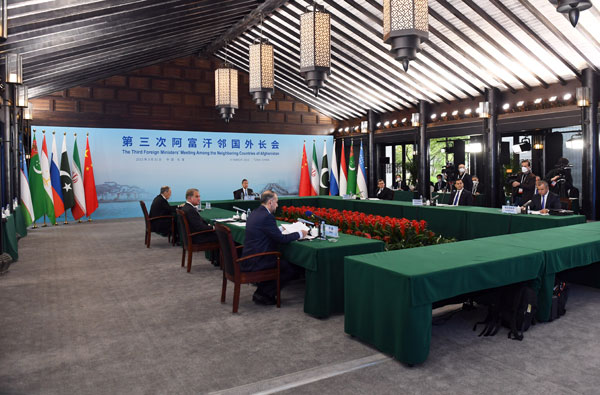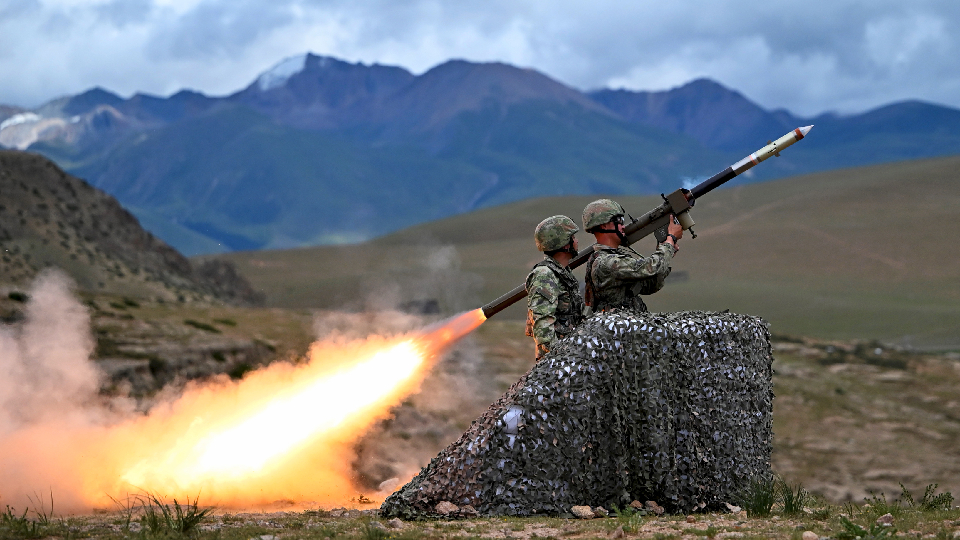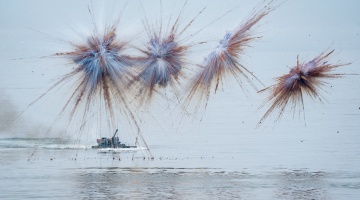
By Wang Jinguo and Zhang Lihui
On March 31, 2022, the Chinese State Councilor and Foreign Minister Wang Yi chaired the Third Foreign Ministers’ Meeting on the Afghan Issue Among the Neighboring Countries of Afghanistan in Tunxi, Anhui Province. This is yet another major effort made by China for the peace, stability and development in Afghanistan amid the turbulent international situation, exerting far-reaching effects on preserving regional security.
The meeting brought together the foreign ministers or representatives from Afghanistan’s neighboring countries, including China, Pakistan, Iran, Russia, Tajikistan, Turkmenistan, and Uzbekistan. An extended meeting of the China-US-Russia consultation mechanism on the Afghan issue was held on the sidelines of the meeting. Given the current international situation, the meeting already accomplished a great feat by getting senior officials of Russia, the US and Afghanistan to sit at the same table.
The meeting sent a clear signal to the world, that is, the international community should not be so occupied by the Ukraine crisis as to ignore the Afghan issue. Instead, it should continue to increase the efforts and resources devoted to Afghanistan to help its people get through the trying times now. Although the security situation in the country has turned for the better, the Afghan people are still faced with multiple challenges both internally and externally.
The stern sanctions slapped by the US-led western bloc on the interim government of Afghanistan since its founding have not in any way mitigated the regional security situation, but increased uncertainties. Solving the Afghan issue would be a long, systematic and complicated process, which requires dialogue and communication rather than pressure and sanction. China’s proposition on solving the Afghan issue, including Afghanistan creating a more open and inclusive political architecture, implementing mild and sound internal and external policies, and cutting all ties with all terrorist forces such as ISIS and East Turkistan Islamic Movement, has in a way gained international recognition. It will be an effective way to solve the issue at root.
Essentially, the US has been a destructive force in both the Russia-Ukraine conflict and the Afghan issue, and its actions are still aggravating the two crises. It’s worth noting that all participating foreign ministers and representatives spoke highly of China’s efforts to set up a platform of dialogue between Afghanistan and the neighboring countries, saying the dialogue has helped regional countries, especially Afghanistan’s interim government and the neighbors, to understand each other, and will facilitate the converging of consensus and provision of more substantial aid for Afghanistan.
The meeting yielded bountiful outcomes by issuing two important documents, Joint Statement of the Third Foreign Ministers’ Meeting on the Afghan Issue Among the Neighboring Countries of Afghanistan, and Tunxi Initiative of Afghanistan’s Neighboring Countries on Supporting Afghanistan’s Economic Reconstruction and Practical Cooperation. The two documents reflected the neighboring countries’ common political stance and decision to provide Afghanistan with substantial support in a range of key areas, including humanitarian aid, interconnectivity, economy and trade, agriculture, energy and electric power, and capacity building.
The meeting on the Afghan issue is an important step taken by neighboring countries to jointly step up the support and aid to Afghanistan, and a meaningful attempt by the international community to search for a new way of resolving hotspot issues. Let’s hope the unwavering efforts by all concerned parties will give the Afghan people a bright future.
(Wang Jinguo, professor at the School of Politics and International Relations and the Institute for Central Asian studies of Lanzhou University; Zhang Lihui, doctoral candidate at School of Marxism, Lanzhou University)
Editor's note: This article is originally published on haiwainet.cn, and is translated from Chinese into English and edited by the China Military Online. The information, ideas or opinions appearing in this article do not necessarily reflect the views of eng.chinamil.com.cn.













